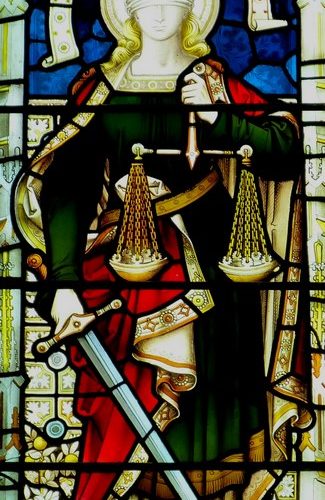On July 14, 1988, the ECJ issued its decision in the cases C-123/87 (Jeunehomme) & C-330/87 (EGI SA). The cases relate to the Right to deduct VAT subject to the availability of an invoice.
Article in the EU VAT Directive
Articles 18 (1) (a), 22 (3) (a) and 22 (3) (b) of the Sixth Directive
Facts
- In the first case, Mrs Jorion seeks the annulment of four demands for payment issued to her by the Belgian State claiming reimbursement of certain amounts of value-added tax which it alleges she wrongfully deducted, contrary to the legal provisions in force and in particular those relating to the information which must be contained in invoices; she also seeks the return of property seized in execution of those demands.
- The deductions in question related to the acquisition of second-hand cars in respect of which the invoices issued by the supplier contained, according to the Belgian tax authorities, certain irregularities. The serial number in the sales ledger was omitted, fictitious addresses and deleted VAT registration numbers were indicated, different signatures appeared in respect of the same name and the vehicles sold were inadequately identified.
- In the second case, EGI essentially seeks the annulment of a demand for reimbursement of certain amounts of value-added tax allegedly deducted in breach of the legal provisions in force relating to the information which must be contained in invoices and reimbursement of the tax credit to which it is entitled; it also seeks interest on the outstanding amounts and damages of BFR 25 000 for vexatious and frivolous litigation.
- The deductions in question relate to goods and services supplied to EGI by two undertakings, Cotradec and Salegno. According to the Belgian tax authorities, the invoices issued by Cotradec do not contain the VAT registration number of the supplier, do not mention the date on which the goods were supplied or the services completed and do not give sufficient details of the business or corporate name of the taxable person. The description of the goods and services is totally inadequate in all the invoices in question.
Questions
Case 123/87:
Do Articles 18 (1) (a) and 22 (3) (a) and (b) of the Sixth Directive permit the Belgian State to make the exercise of the right to deduction subject to the holding
of a document which must contain not only the information normally contained in an invoice as traditionally defined in commercial law but also other information unconnected with the nature, essence and purpose of a commercial invoice, namely that specified in Article 2 of Royal Decree No 1 of 23 July 1969 adopted in implementation of the Belgian VAT code?
Case 330/87:
Do Articles 18 (1) (a) and 22 (3) (a) and (b) of the Sixth Directive permit the Belgian State to make the exercise of the right to deduction subject to the holding
of a document which must contain not only the information normally included in an invoice as traditionally defined in commercial law but also other information unconnected with the nature, essence and purpose of a commercial invoice, namely that specified in Article 2 of Royal Decree No 1 of 23 July 1969 adopted in implementation of the Belgian VAT code, where such additional information is purely technical in nature and is designed to facilitate supervision of the collection of the tax on the basis of the accounts of another taxable person with whom the person in question has concluded a contract.
AG Opinion
Articles 18 (1) (a), 22 (3) (a) and 22 (3) (b) of the Sixth Directive permit a Member State to make the exercise of the right of deduction referred to in Article
17 thereof subject to the holding of a document which must contain not merely the information which may be customary or necessary for commercial purposes but also other information which is reasonably necessary for the verification and fiscal control of transactions in respect of which a right to deduct input tax is sought to be exercised. Such information may include the matters set out in Article 2 of Royal Decree No 1 of 23 July 1969, a measure adopted for the implementation of the Belgian Value-added Tax Code, but if and in so far as they go beyond such matters, not the further details specified in Article 4 (2) of Royal Decree No 17 of 20 July 1970.
Decision
Articles 18 (1) (a) and 22 (3) (a) and (b) of the Sixth Council Directive (77/388/EEC) of 17 May 1977 allow Member States to make the exercise of the right to deduction subject to the holding of an invoice which must contain certain particulars which are necessary in order to ensure the levying of value-added tax
and permit supervision by the tax authorities. Such particulars must not, by reason of their number or technical nature, render the exercise of the right to deduction practically impossible or excessively difficult.
Summary
- The serial number in the sales ledger was omitted, fictitious addresses and deleted VAT registration numbers were indicated. Invoices do not contain the VAT registration number of the supplier, do not mention the date on which the goods were supplied or the services completed and do not give sufficient details of the business or corporate name of the taxable person. The description of the goods and services is totally inadequate in all the invoices in question.
- Articles 18(1)(a) (Art. 178(a)) and 22(3)(a) and (b) (Art. 220 to Art. 231) of the Sixth Directive […] allow Member States to make the exercise of the right to deduction subject to the holding of an invoice which must contain certain particulars which are necessary in order to ensure the levying of VAT and permit supervision by the tax authorities.
- Such particulars must not, by reason of their number or technical nature, render the exercise of the right to deduction practically impossible or excessively difficult.
Source
Similar ECJ cases
Newsletters















